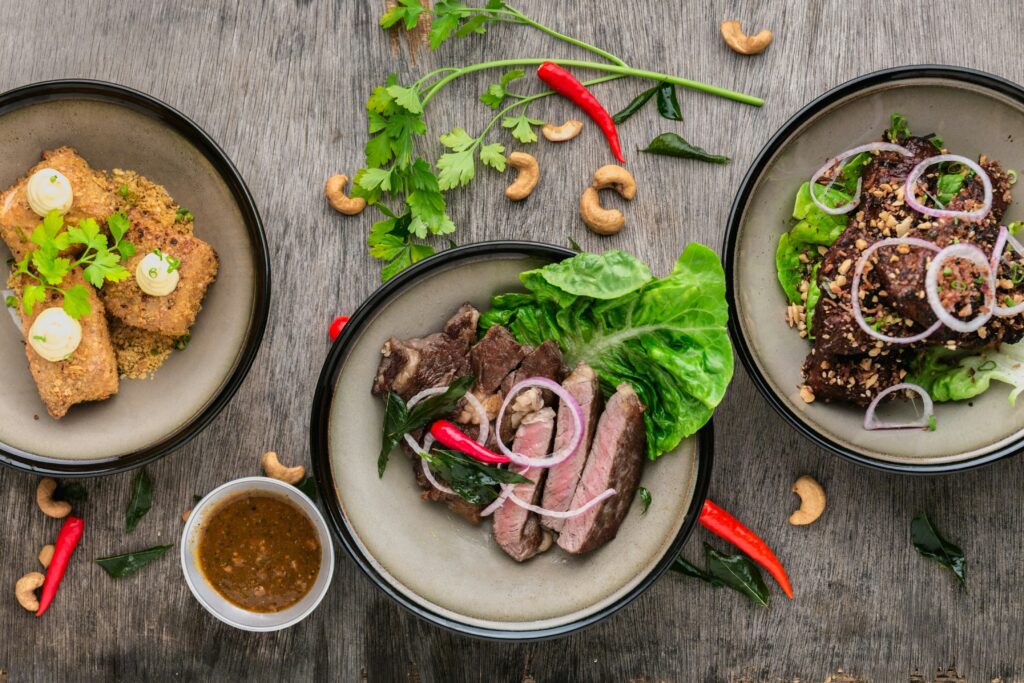
Polycystic Ovarian Syndrome (PCOS) affects millions of women worldwide, impacting their hormonal balance, menstrual cycle regularity, fertility, and overall well-being.
While PCOS is a complex condition with various contributing factors, including genetics and insulin resistance, adopting a balanced and nourishing diet can play a crucial role in managing its symptoms.
In this blog post, we’ll explore the best dietary strategies to help alleviate the symptoms of PCOS and promote hormonal balance and overall health for you.
1.Include Low-Glycemic Index Foods:
PCOS is often associated with insulin resistance, which can lead to elevated blood sugar levels and increased production of androgens (male hormones).
Opting for low-glycemic index (GI) foods can help regulate blood sugar levels and insulin sensitivity.
Include whole grains like quinoa, barley, and oats, as well as legumes, non-starchy vegetables, and fruits such as berries, apples, and citrus fruits.
2.Prioritize Lean Protein Sources:
Including lean protein sources in your diet that can help stabilize blood sugar levels and promote satiety, also it may aid in weight management.
Go for lean proteins like skinless poultry, fish, tofu, tempeh, legumes, and eggs.

These protein-rich foods can also support muscle health and metabolism in
Polycystic ovarian Syndrome Diet
3.Take Healthy Fats:
Include sources of monounsaturated and polyunsaturated fats, such as avocados, olive oil, nuts, seeds, and fatty fish like salmon and mackerel in your diet.
These fats can help reduce inflammation, support cardiovascular health, and promote hormone balance in Polycystic ovarian Syndrome.
4.Focus on Fiber-Rich Foods:
Fiber plays a crucial role in our digestion and gut health along hormonal balance.
Aim to include a variety of fiber-rich foods in your diet, such as vegetables, fruits, whole grains, nuts, seeds, and legumes as Polycystic ovarian Syndrome Diet.
Fiber helps slow down the absorption of sugar and can contribute to feelings of fullness, aiding in weight management and promoting regular bowel movements.
5.Limit Processed and Sugary Foods.
Processed foods are high in refined carbohydrates, added sugars, and unhealthy fats can exacerbate your insulin resistance and inflammation, worsening PCOS symptoms.
Minimize consumption of sugary snacks, sugary beverages, white bread, pastries, fried foods, and processed meats in your Polycystic ovarian Syndrome Diet.
Instead, opt for whole, minimally processed foods to support your health and well-being.
6.Stay Hydrated as a part of your Polycystic ovarian Syndrome Diet.
Adequate hydration is essential for overall health and can support hormone balance.
Opt for water as your primary beverage throughout the day and limit consumption of sugary drinks and excessive caffeine, which can disrupt hormone levels and exacerbate PCOS symptoms.
7.Moderate Alcohol Consumption -an unique approach in Polycystic ovarian Syndrome Diet.

Excessive alcohol intake can disrupt hormone balance, liver function, and metabolism, potentially worsening PCOS symptoms.
If you choose to drink alcohol, do so in moderation and consider opting for healthier choices like dry wine or spirits mixed with soda water.
Remember, dietary changes alone may not completely alleviate PCOS symptoms, and individual responses may vary.
But by nourishing your body with wholesome foods and adopting healthy habits, you can take proactive steps to manage PCOS and promote your overall health and well-being. you can also see https://wellhealthdaily.com/understanding-polycystic-ovarian-syndrome/